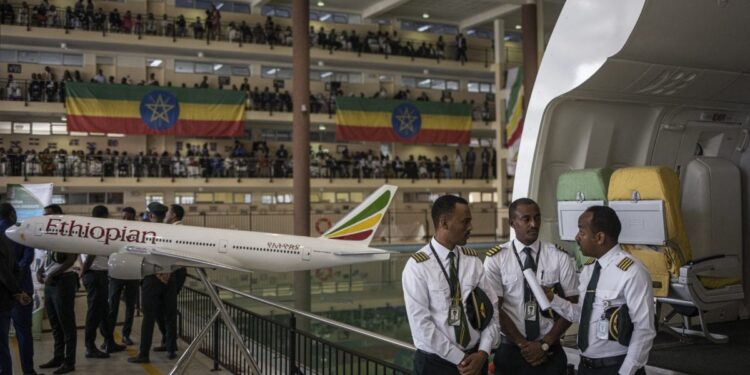The United States has moved to strengthen its strategic and economic footprint in the Horn of Africa, with plans to help finance Ethiopia’s new $10 billion Bishoftu International Airport through the U.S. International Development Finance Corporation (DFC). The project marks a major shift in Washington’s engagement with Addis Ababa after years of strained relations.
Strategic investment in regional connectivity
The Bishoftu International Airport, located about 40 kilometres southeast of Addis Ababa, is set to become one of Africa’s largest aviation hubs once completed. The facility will replace the congested Bole International Airport and support Ethiopian Airlines’ ambitions to expand global routes and cargo capacity.
DFC’s participation signals renewed U.S. interest in large-scale infrastructure across East Africa, an area long dominated by Chinese state-backed investments. By aligning with Ethiopia’s infrastructure drive, Washington aims to offer an alternative development model that prioritises transparency, sustainability, and long-term economic partnerships.
A turning point in U.S.–Ethiopian relations
The move also reflects a broader diplomatic recalibration. U.S.–Ethiopian ties cooled sharply during the country’s recent civil conflict, with aid cuts and sanctions over human rights concerns. However, recent peace efforts, combined with Ethiopia’s desire to re-establish investor confidence, have paved the way for rapprochement.
Senior DFC officials described the project as a “flagship investment” designed to catalyse private sector participation in Africa’s transport and logistics sectors. The financing package, still under negotiation, could include loan guarantees, equity investments, and advisory support.
China’s influence and the geopolitical backdrop
Analysts say the airport project is emblematic of intensifying competition for influence between the U.S. and China in the Horn of Africa. Beijing has poured billions into Ethiopian railways, industrial parks, and digital infrastructure under its Belt and Road Initiative. Washington’s involvement in Bishoftu, therefore, represents a strategic counterweight—framed less as rivalry and more as a partnership grounded in governance and accountability.
“The U.S. wants to show it can deliver viable alternatives to China’s approach,” said one regional analyst. “Infrastructure is now diplomacy by another name.”
Economic promise for Ethiopia
For Ethiopia, the project could be transformative. The new airport is expected to handle up to 100 million passengers annually, support tens of thousands of jobs, and bolster the country’s position as a logistics and tourism gateway to Africa.
As Addis Ababa seeks to rebuild after conflict and inflationary pressure, U.S. backing for Bishoftu may signal renewed global confidence in Ethiopia’s recovery—and a rebalancing of partnerships in one of Africa’s most strategic corridors.
Newshub Editorial in Africa – 23 October 2025



Recent Comments